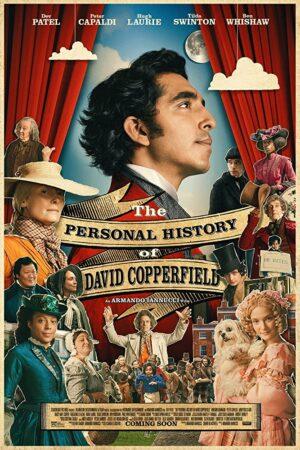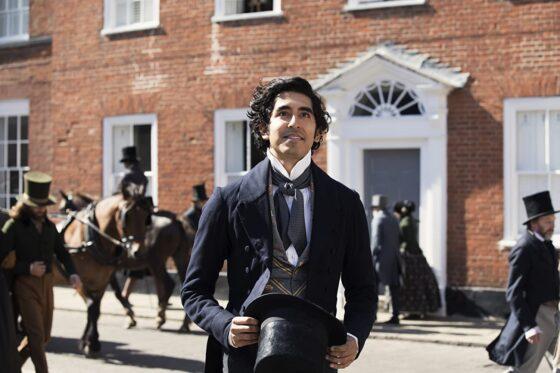

[Rating: Minor Rock Fist Down]
Opens in theaters August 28.
Ah, David Copperfield by Charles Dickens. Who among you have read it since high school and retained it? Me neither.
Here’s the challenge with David Copperfield: It was originally published as a serial – checking in with a character occasionally as he grows from a fatherless, seaside wandering boy to a frustrated adult and ultimately a father himself.
Also, there really isn’t a plot. It’s a series of moments in a life that is Dickensian – full of struggle and vibrant characters.
Filmed in 2018 and not released until 2020, thanks to a pandemic and editing and just modern life, The Personal History of David Copperfield, directed by Armando Iannucci, has legitimate star power, an impressively diverse cast, but no comprehension of pacing or tone. The film, which would have been far superior as a miniseries, shines when Tilda Swinton and Hugh Laurie are on screen, but unfortunately, their characters can’t carry the movie.
Iannucci tries to infuse the story with whimsy (one of my very favorite things), but the imaginative transitions and overlapped visuals are too sporadic to make the movie the visual feast the poster is advertising. Instead, the film is just uneven (and with absolutely dreadful sets that often look painted or like an actual mobile home). Honestly, if the film committed to that visual expression, and was less committed to the source material (and I will NEVER say that again), it would have been more interesting.
David Copperfield (Dev Patel as an adult, and, unfortunately, an adolescent and Ranveer Jaiswal as a child) is born six months after his father’s death. His great aunt, Betsey Trotwood (Swinton, an absolute gem – I’ve never been inspired to kick someone off a donkey before, but now I hope the opportunity arises) was committed to him being a girl, but alas, not everyone can be so lucky.

The first half hour of the movie is frantic and confusing. Using occasional fantastical imagery to evoke David’s imagination and experiences, including Patel’s presence at his own birth to establish that these are his memoirs (if the title didn’t cinch it for you), it moves so quickly it is difficult to connect to any of the characters to the plot points.
Finally, 35 minutes in, Copperfield is reacquainted with his aunt (Swinton mercifully returning) and her distant relative Mr. Dick (Laurie bringing blessed relief and weight).
This is the best moment of the movie – and it doesn’t last long. Swinton and Laurie understand that comedy requires timing – tension needs to be held long enough to register so one can react – and their scenes are far and away the best in the movie. When Benedict Wong shows up as Mr. Wickfield, with his daughter Agnes (Rosalind Eleazar), the cast plays an excellent scene with a hidden bar, but unfortunately, the movie can’t maintain the achievement.
After that – it’s just off the rails with characters and plot points coming fast and furious, but lacking in the depth required to connect to any of it.
Patel, an expressive, warm actor, is too old for the role for a good chunk of the movie. He’s obviously in his late 20s playing a teenager for quite a large portion. He’s got star power and he’s fun to watch, but he plays Copperfield like Kramer from Seinfeld – loud plaid pants, wild hair, and sort of bursting into every scene. He’s the straight man to these zany characters, but he’s got too much charisma to let the other actors take the scene.
Ben Whishaw plays Uriah Heep like the love child of Lloyd Christmas and Crispin Glover (watch it and tell me I’m wrong).
When the movie begins to close with David journaling and looking back over his life and choices, he figures out what woman he’s supposed to be with (one of them is played by Morfydd Clark, who also plays his mother and it is uncomfortable. I get it, but it isn’t great), it feels overly meta and redundant, like we’re watching a movie of the movie of the movie.
It’s not until the movie approaches the end of its two hour run that it attempts anything resembling a plot, but it’s so convoluted and late and there are so many characters and so little time to connect to them, it’s very difficult to care.
Why watch it? The movie proves you don’t need everyone to match to make the movie. The diversity of the cast is genuinely impressive in that you barely notice it. Because it’s absolutely family friendly and you can make your kids watch it as part of their distance learning and get some sort of Dickensian exposure (although they won’t want to go near Dickens again).




Comments on this entry are closed.